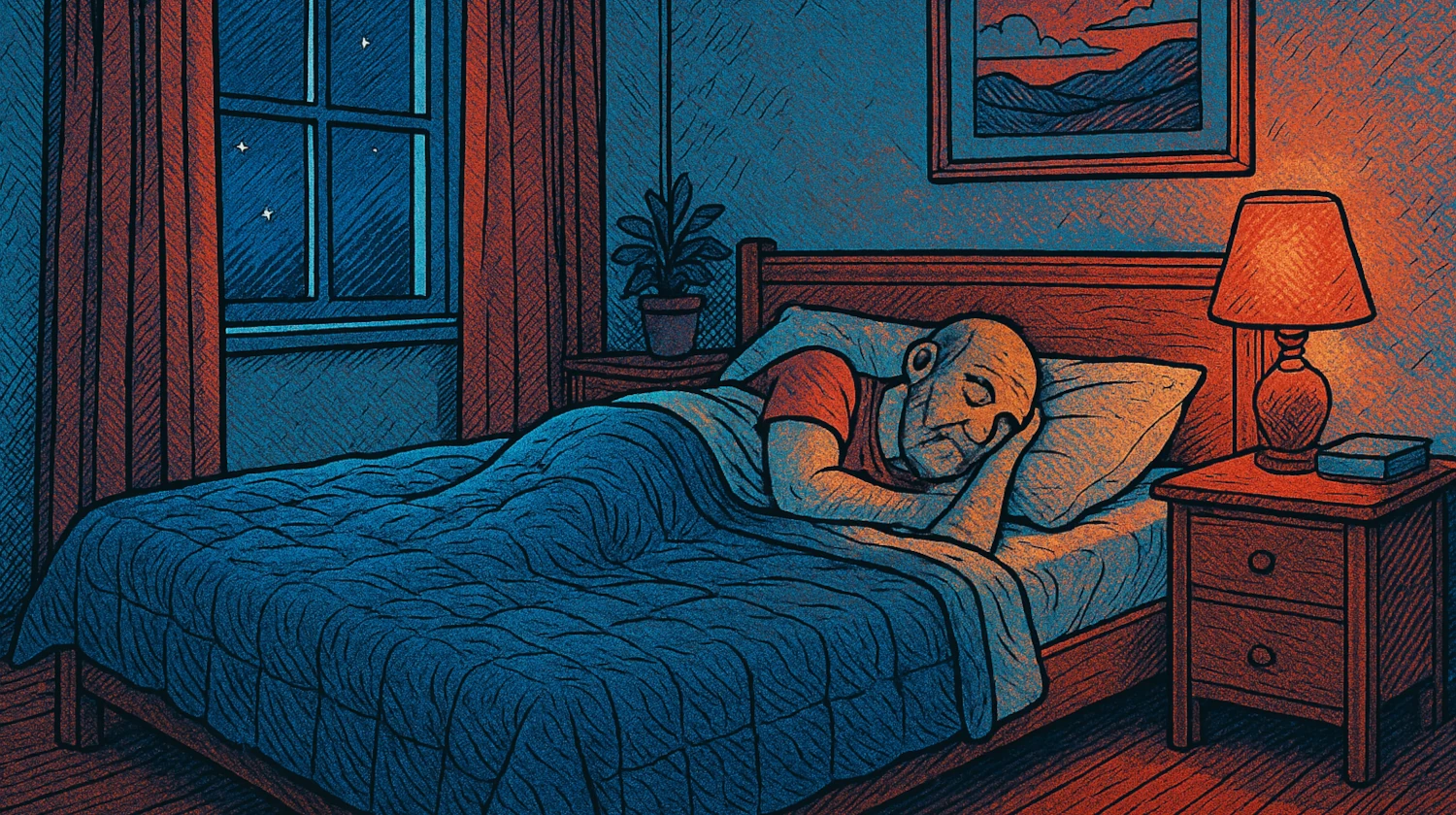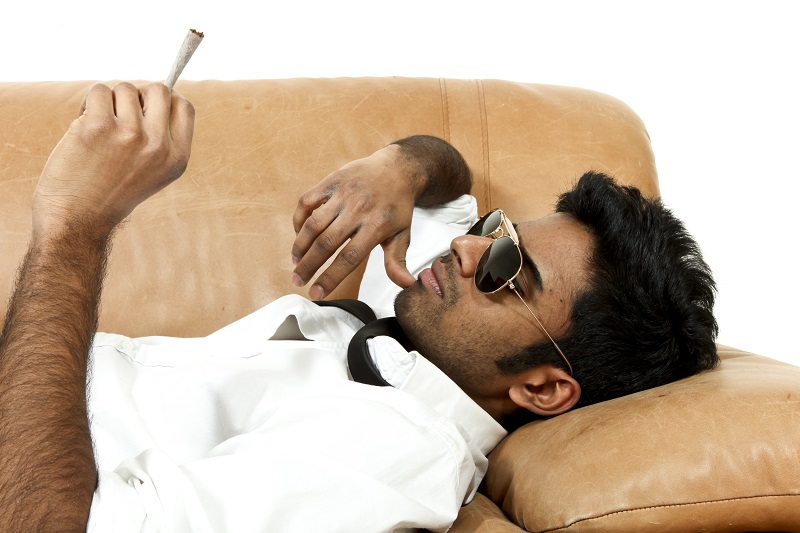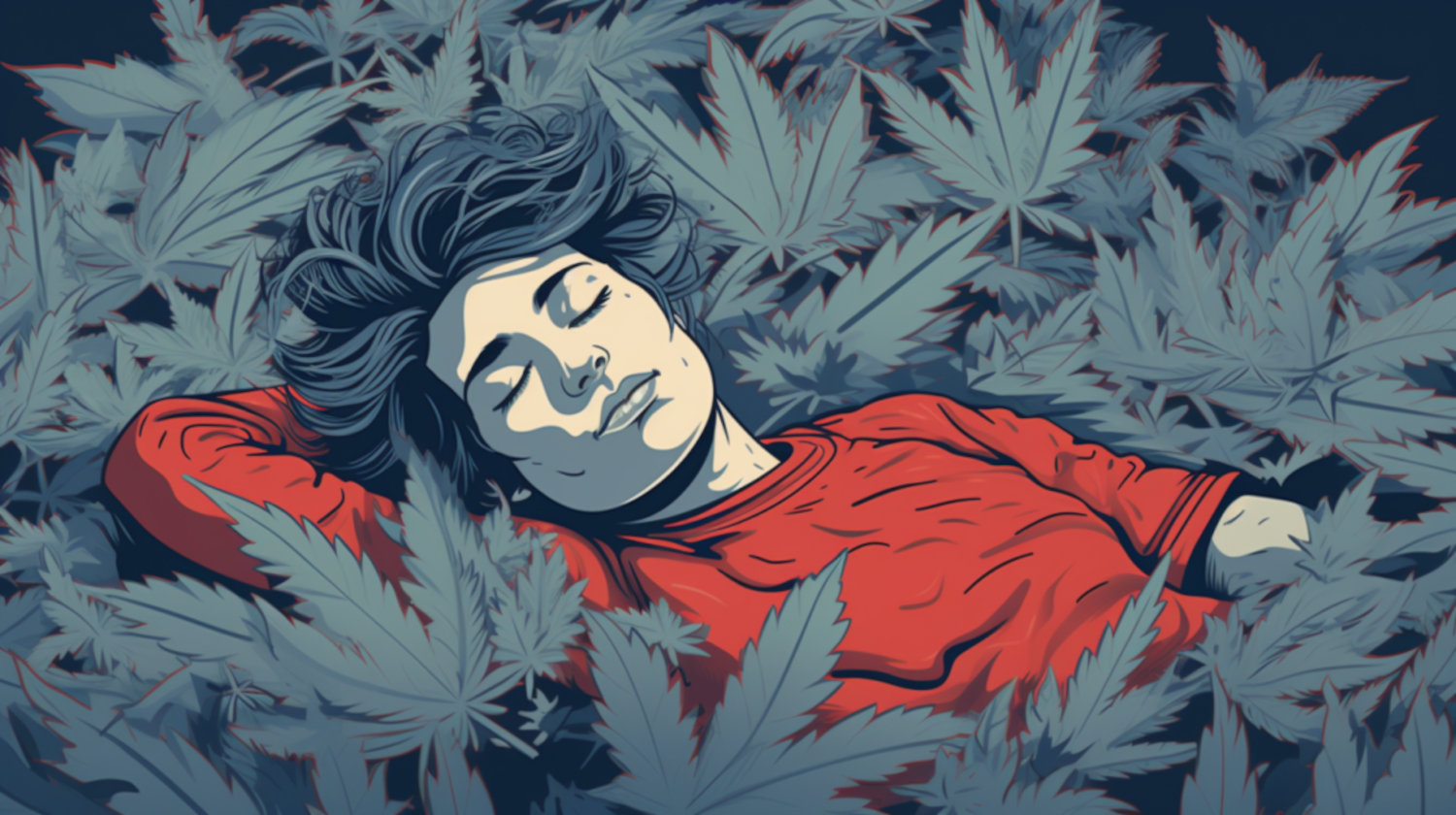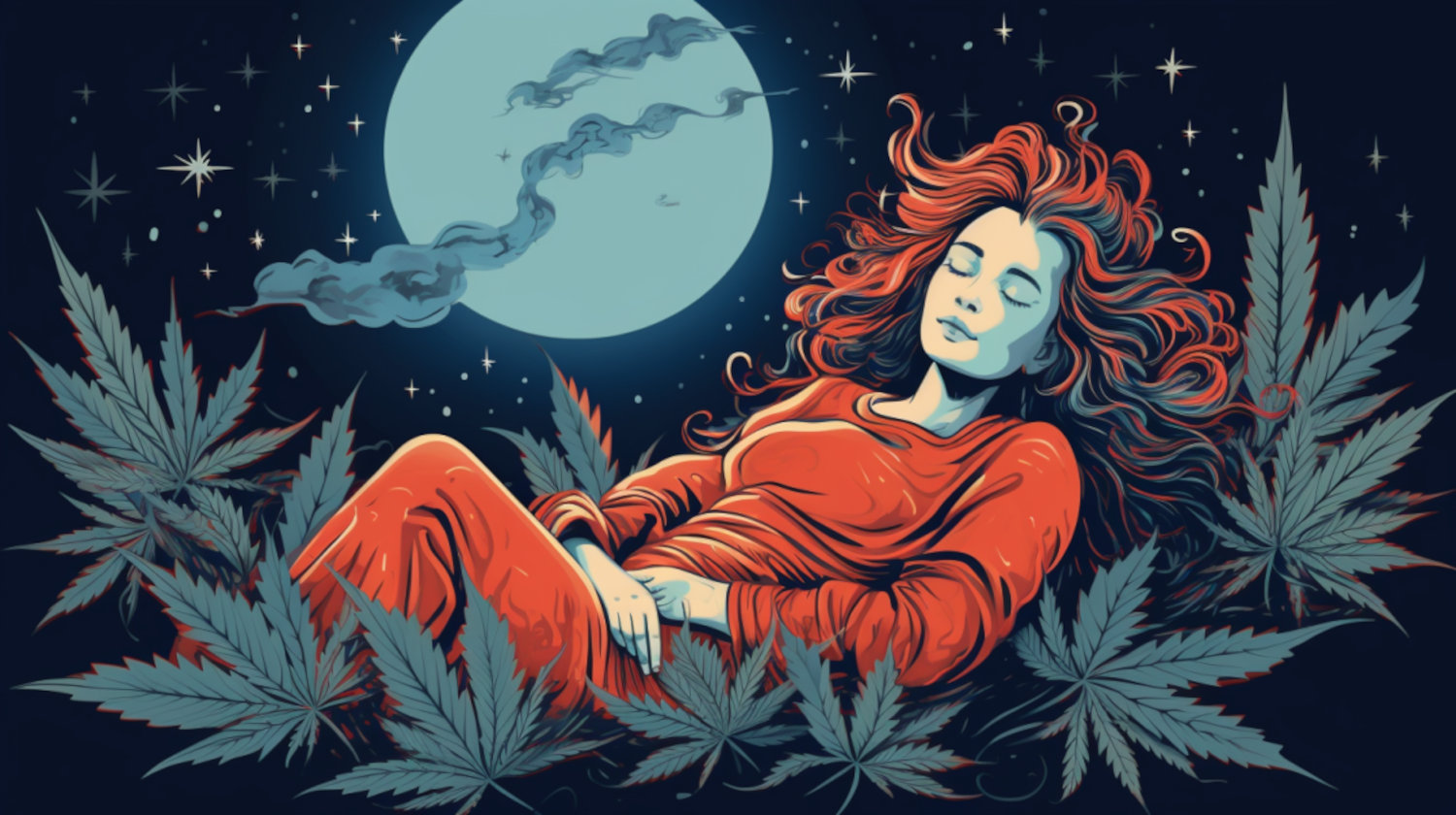Key Takeaways About Weed and Tiredness
- Weed can make some people feel tired, but the effect depends on various factors, including strain, dose, and individual biology.
- Some terpenes are associated with relaxation and sleepy effects; others may produce the opposite effect.
- Choosing the right strain is often helpful in achieving the desired outcome, though additional considerations are typically required.
Everyone knows that weed makes you sleepy, right? But, does weed make you tired, or is that all in your head? While it would be nice to answer definitively, the variables at play make it hard to provide a clear one-size-fits-all answer.
Cannabis affects everyone differently. And while researchers have studied the relationship between cannabis and sleepiness for decades, the existing evidence produces mixed results.
Does Weed Make You Tired? Is That Normal?
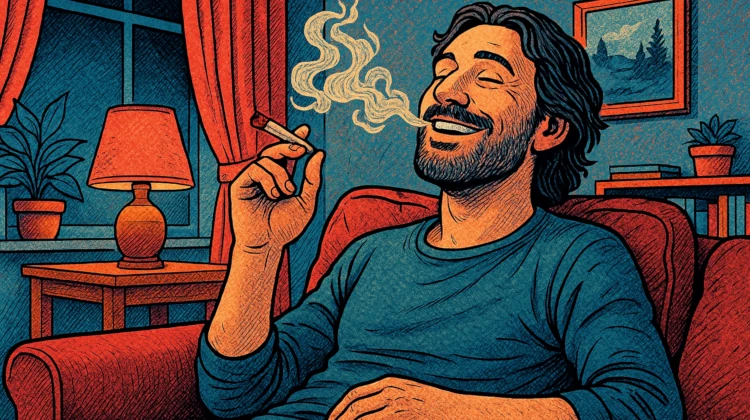
Yes, it’s normal to feel tired after consuming cannabis. In fact, it’s quite common. Still, it’s far from a guarantee.
Some people report using cannabis in hopes of improving sleep quality. Early research has also explored whether cannabis can influence feelings of drowsiness or relaxation. However, results are mixed, so more evidence is needed.
While some feel sleepy from it, others may notice the opposite effect, such as increased energy or focus. The outcome is believed to depend on many factors, including dosage, strain, and individual body chemistry.
Researchers believe that these effects may relate to how certain plant compounds, namely cannabinoids like THC and terpenes like myrcene, interact with the body’s complex endocannabinoid system (ECS).
Scientists believe the ECS may play a role in regulating core body functions, including mood, energy, and sleep. When THC and other plant compounds interact with it, various effects can take place, often activating or slowing down bodily processes.
A small 2022 clinical trial in the Journal of Sleep Research found that 60% of participants who used cannabis oil were no longer classified as insomniacs after the trial. However, researchers emphasized the study’s limited size and called for larger, controlled studies to confirm these findings.
In the same report, researchers observed a 30% increase in melatonin levels in its cannabis group. The result suggests a possible connection between cannabis and the body’s natural sleep hormone, though additional research is needed.1
One year prior, a 2021 review found that cannabis most likely influences sleep through activation of the ECS’s CB1 receptors, potentially triggering sleep neurotransmitters. The review also noted that high doses of THC can alter sleep stages and increase feelings of tiredness.2
Why Does Weed Make Me Sleepy?
As briefly touched on above, numerous factors are believed to contribute to cannabis’s sometimes tired outcomes. Factors include, but aren’t limited to:
- Cannabinoids: THC has been linked to producing sleepy-like effects for some people, especially at higher doses. CBD interacts differently, producing non-intoxicating effects, but its role in tiredness remains uncertain.
- Terpenes: Compounds like myrcene, linalool, and terpinolene are often associated with calming or relaxing effects. A 2020 review in Current Neuropharmacology suggested that terpenes may amplify cannabinoid activity, influencing mood and sleep through what’s called the entourage effect.3
- Individual biology: Genetics and metabolism influence how quickly THC moves through the body, which can shape whether the experience feels stimulating or tiring. Additional factors, such as body size, fat content, and when a person last ate, can all play a part in how significant the effects are felt.
- Tolerance: Frequent cannabis use can reduce the stimulating side of the experience, making sedation stand out more. Many heavy consumers report noticing a difference after taking a “tolerance break,” pausing THC use for days, weeks, or even months in an effort to recapture the stimulating effects.
- Setting: A comfortable environment may encourage relaxation, while a social or stimulating environment may offset it. In addition to location, the people, temperature, and overall vibe of the area can potentially impact the experience.
Consumption Methods
The way cannabis is used often changes how quickly effects begin and how long they last. As such, each method can potentially influence whether the result feels calming or tiring and how long and intense the effects are.
Smoking and vaping deliver effects faster than edibles, often felt in moments. This often instant effect is caused by THC moving quickly into the bloodstream. For some, that rapid onset can feel heavy and deeply relaxing, which may lead to drowsiness.
Edibles can bring on similar effects, often lasting longer and feeling more intense, though the onset is delayed. Depending on the product and individual metabolism, it may take anywhere from 15 to 120 minutes before the experience begins.
Different methods can shift the outcome. Tinctures, for instance, may feel different from smoking. Absorbed under the tongue, tinctures bypass some liver processing, which can create a lighter effect compared to edibles.
Strains for Making People Tired
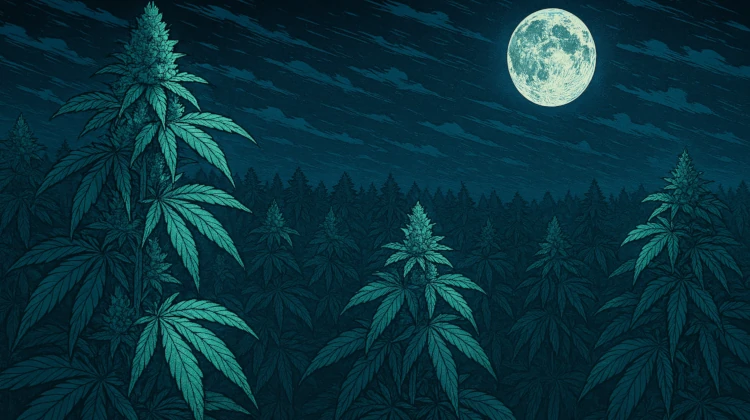
Certain strains are often associated with sedation. Many contain higher levels of myrcene or linalool, the same calming compounds found in lavender and related plants.
Some of the more popular strains rich in myrcene and linalool include:
- Remedy: A myrcene-dominant cultivar often described as calming and relaxing, making it a common choice for winding down.
- Alien OG: Carries notable levels of myrcene and is known for its relaxing body effects.
- Ringo’s Gift: Myrcene-rich strain linked to peaceful, restful sensations, thanks in part to its myrcene profile.
- LA Confidential: Highlighted for its linalool content and reported calming effects.
- OG Kush: A classic strain that appears on many linalool-rich lists, valued for its reported soothing qualities.
- Granddaddy Purple: Well known for its linalool presence and reputation as a deeply relaxing, sleep-friendly cultivar.
On the other hand, many cultivars provide uplifting and energizing effects. No matter the effect, the best outcome often starts with the right strain selection.
Does the Time of Day Matter?
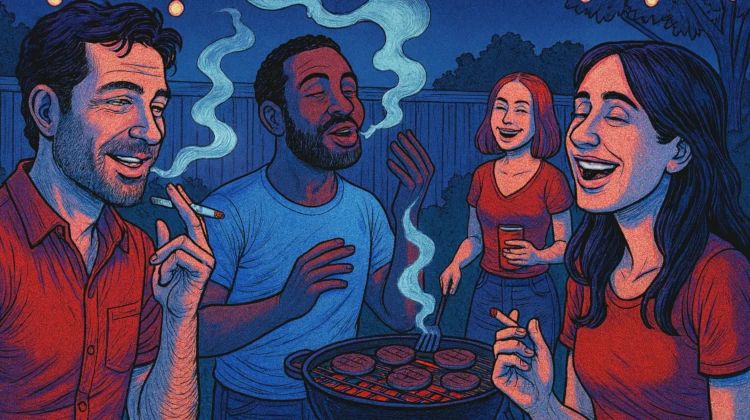
The time of day can influence whether weed feels more sedating. Essentially, consuming cannabis when tired is likely to produce sedative outcomes even if a strain isn’t known for putting people to sleep.
This is because using cannabis in the evening, when the body typically begins winding down, has the chance to increase feelings of tiredness. In comparison, morning or midday consumption may lead to lighter feelings, even if the strain is known for producing relaxing, sleepy effects.
Circadian rhythm —the body’s natural sleep-wake cycle —may also play a role. Enjoying select strains when it best aligns with natural energy levels may help avoid unwanted sleepiness, according to select feedback.
Is Indica or Sativa Better for Not Feeling Sleepy?
People often assume sativas are energizing while indicas are sleep-inducing. While there’s some truth to this claim, it’s far from accurate across the world of cannabis strains.
While indica strains are often linked to feeling tired, don’t be fooled by plant species. That’s because the indica vs. sativa debate has significant limits.
Ethan Russo, MD, notes that the terms “indica” and “sativa” were first meant to describe how cannabis plants look, namely their bud structure, rather than the typical effects produced. Russo went on to explain that the plant’s chemical profile, measured through cannabinoid and terpene testing, is a stronger indicator of whether a cultivar’s effects are calming, energizing, or otherwise.4
How to Avoid Tiredness From Cannabis
Cannabis doesn’t always have to result in sleep. With a few choices, consumers can find ways to enjoy the plant’s effects while staying awake and energized:
- Choose strains wisely: Certain calming terpenes are more likely to produce a sedating effect. While others may produce the opposite outcome.
- Pay attention to timing: Lighter strains used earlier in the day are less likely to cause drowsiness. Heavier, sleep-inducing options are better suited for nighttime.
- Set the environment: Bright lighting, movement, and conversation may help maintain energy. Quiet, dark settings often encourage rest.
References
- Ried K, Tamanna T, Matthews S, Sali A. Medicinal cannabis improves sleep in adults with insomnia: a randomised double‐blind placebo‐controlled crossover study. Journal of Sleep Research. 2022;32(3). doi:https://doi.org/10.1111/jsr.13793 ↩︎
- Edwards D, Filbey FM. Are Sweet Dreams Made of These? Understanding the Relationship Between Sleep and Cannabis Use. Cannabis and Cannabinoid Research. 2021;6(6). doi:https://doi.org/10.1089/can.2020.0174 ↩︎
- Ferber SG, Namdar D, Hen-Shoval D, et al. The “Entourage Effect”: Terpenes Coupled with Cannabinoids for the Treatment of Mood Disorders and Anxiety Disorders. Current Neuropharmacology. 2020;18(2):87-96recapture. ↩︎
- Piomelli D, Russo EB. The Cannabis sativa Versus Cannabis indica Debate: An Interview with Ethan Russo, MD. Cannabis and Cannabinoid Research. 2016;1(1):44-46. doi:https://doi.org/10.1089/can.2015.29003.ebr ↩︎
The information in this article and any included images or charts are for educational purposes only. This information is neither a substitute for, nor does it replace, professional legal advice or medical advice, diagnosis, or treatment. If you have any concerns or questions about laws, regulations, or your health, you should always consult with an attorney, physician or other licensed professional.

